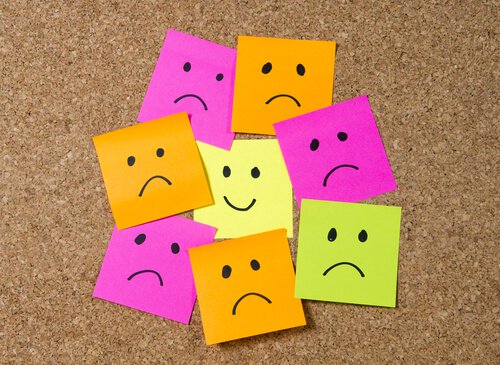Optimism and Health - Are They Related?


Written and verified by the psychologist Sergio De Dios González
Optimistic people tend to face their problems more effectively. They firmly believe they can do what they want in spite of the adversities, they give up less and their coping style is usually more proactive. Those who are optimistic focus on what they can gain instead of what they can lose. Does having this perspective in life have anything to do with the relationship between optimism and health?
According to numerous studies (self-reports, health estimates made by health professionals, number of visits to the doctor or measurement of survival time after heart attacks), optimism has proven to be a predictor of good health. Based on the results of these studies, we can conclude that the correlation between optimism and health tends to be between 0.20 and 0.30. Let’s expand on this.
Types of optimism
When we hear “Optimism”, we usually think of expecting positive and favorable results, which is deeply related to people’s psychological and physical well-being. However, there are two different types of optimism:
- Dispositional: this is the optimism we usually refer to. Positive, constant and generalized expectations of getting good results. This type of optimism is considered relatively stable.
- Situational: concrete expectations of obtaining good results in specific contexts, a particular circumstance, stressful events, etc.

Studies have mostly focused on the dispositional optimism, trying to figure out how to make people get generalized optimism. Sheier and Carver developed the Life Orientation Test (LOT). This test measures generalized expectations; that is, the dispositional optimism when expecting to get positive results.
Factors that impact our well-being
Optimism, well-being and positivism are all directly related. There are several factors that determine if they’re on a higher or lower level:
- Personality: according to Myers (2000), a great part of our subjective well-being is determined by our personality. In detail, genetic factors can explain 50% of the variance of happiness; this is why it’s relatively stable through time.
- Wealth: money doesn’t equal happiness. On a personal level, being wealthy isn’t related to being joyful. In fact, those who constantly wish for more money are usually unhappier than those who don’t.
- Interpersonal relationships: being intimate with other people is a basic and essential human need. Most people feel happier when they have meaningful relationships than when they don’t.
- Achievement of goals: accomplishing goals definitely increases people’s well-being.
Positive emotions, optimism and physical health
Optimistic people often use strategies that aim to solving problems directly, especially when feeling they have control over the situation. They think they’re able to change the situation, so they act and then evaluate. However, pessimists evaluate and then, if the expectations convince them, they act.(Sanna, L., 1996).
Positive emotions associate to the increase in Immunoglobulin A. This antibody is considered as the first line of defense against illnesses. There aren’t only direct effects from these emotions, but also subjective ones. People who feel happy:
- Show less physical symptoms than those who feel sad. Sad people tend to feel more discomfort.
- Consider themselves less vulnerable than sad people, so it’s easier for them to keep up with their health.
- They perceive themselves as more capable of engaging in health-promoting behaviors and have more confidence that they’ll alleviate their illness.
“Just one positive thought in the morning can change your whole day”.
-Dalai Lama-
See also Achieve Health Goals With Optimism/Positive Thinking

Explanatory mechanisms of the relationship between optimism and health
There are three mechanisms that aim at understanding the correlation between these two aspects:
- Physiological mechanism: optimists have less cardiovascular reactivity to stress and a higher immunological status; that is, a greater number of biological defenses, which equal fewer health problems.
- Emotional mechanism: the relationship between optimism and health is indirect, through emotional states. Negativity is linked to a worse functioning of the cardiovascular and immune systems.
- Behavioral mechanism:optimists perform health-promoting behaviors to a greater extent than pessimists. Their healthy behaviors cause them to have better health; such as exercising, drinking in moderation, a balanced diet and avoidance of misconducts.
Conclusive self-reports
Plenty studies conclude that optimistic people tend to recover from illnesses in a more satisfactory way than pessimistic people. Here you have some evidence that support this idea:
- Pregnancy and birthing: optimistic women experience less depressive symptoms during pregnancy and post-partum. They also feel less anxious, which helps them significantly on a psychological level after a miscarriage.
- Surgeries: in a longitudinal study carried out with patients who had undergone this type of surgery, the results were conclusive: before their surgery, optimists showed lower levels of negative emotions, hostility and depression.
- Cancer: women who kept themselves positive during their breast cancer diagnosis process, showed lower levels of discomfort before and after their interventions.
- HIV Victims: some studies indicate that HIV-positive people who are optimistic, present lower levels of negative emotions and worries associated to the development of the desease.

Having studied the optimism and its consequences, it’s all up to you if you want to maintain a positive attitude, aimed at reaching your goals. One thing is certain: keeping a positive mindset improves our health, mood and overall well-being.
This text is provided for informational purposes only and does not replace consultation with a professional. If in doubt, consult your specialist.








